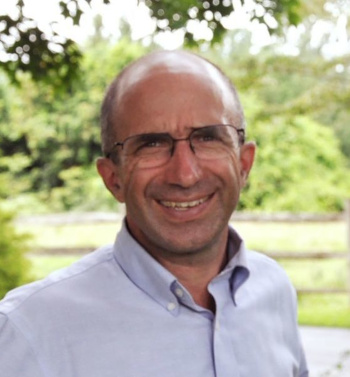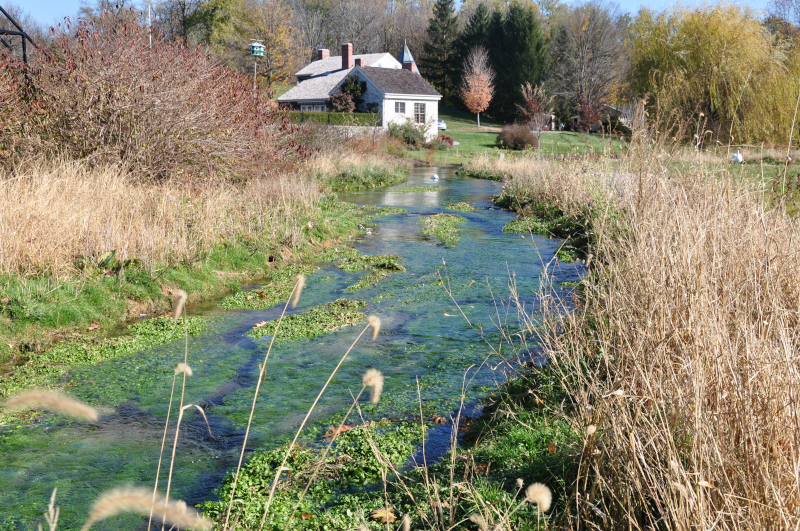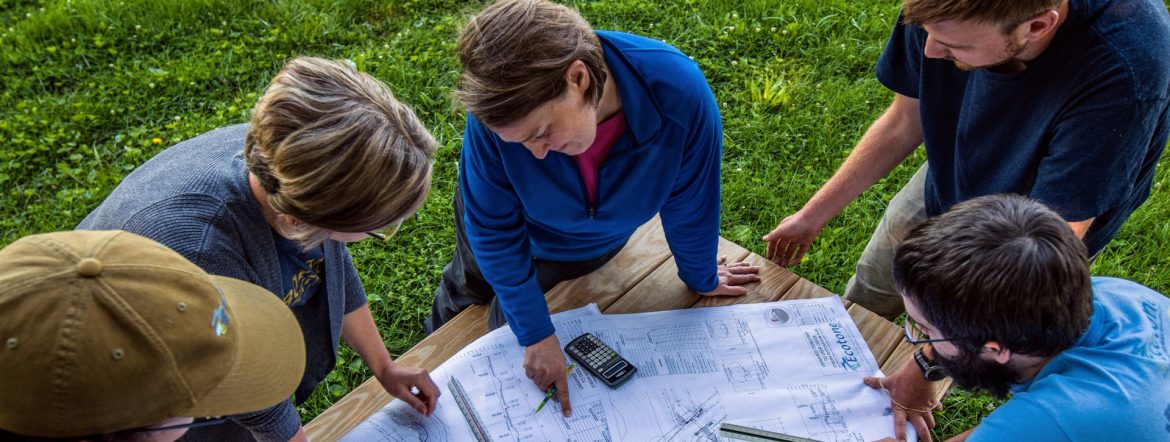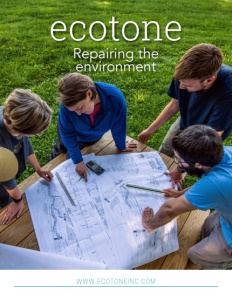Ecotone
Repairing the environment
Business View Magazine interviews Scott McGill, President of Ecotone, as part of our focus on the environmental services sector.
Is the damage that’s been done to our biodiversity and ecosystems reparable? That’s been the focal point of ecological restoration since it emerged as an engineering design practice in the 1960s and so far, the field has provided some very effective answers. One important foundational principle upon which the discipline rests is that of mutual sustainability – with threats of climate change and severe degradation looming large, human beings need to be more cooperative with the land masses, waterways, and other species that constitute their habitat. It’s also one of the tenets of the design-build firm Ecotone, and it’s reflected both in its name and in its corporate focus – an ecotone is a transitional space where biological communities meet and integrate. From its offices in Forest Hill and Columbia, Maryland, the company prides itself on being that vital link between habitat quality and socio-economic development.

President, Scott McGill
What began in 1998 as a small consultancy operating out of a basement in Fallston, MD, mostly offering restoration design associated with rivers, has evolved into a full-service ecosystem restoration and mitigation, design, consulting, and construction services company. With a multi-disciplinary staff of ecologists, geomorphologists, engineers, and construction specialists bringing over 200 years of collective experience to the table, Ecotone, today, provides individualized solutions tailored to fit each client’s specific needs.
“We’ve basically grown with the industry,” says Company President, Scott McGill. “In the beginning, we primarily were involved with Chesapeake Bay restoration in the Mid-Atlantic. We started doing design-build and built it up slowly. We hired staff in 2001. In 2005, we launched our construction division. We bought our own skid loader which, at the time, was kind of a big deal. I always go back to it and think about that and how we’ve grown so much. Ecological restoration is a multibillion-dollar business across the country now. It wasn’t always that way, but as the environmental awareness and ethic has evolved, there’s been more capital dedicated to restoring our environment. We’ve accelerated our growth in the last five years in response to the Environmental Protection Agency (EPA) and the state of Maryland really pushing to execute on ecological restoration work. A lot of our funding comes from government agencies. In Maryland, especially, there’s a real push to do restoration associated with the Chesapeake Bay.”
The Bay is the largest estuary in the U.S. and Maryland plays a big part in its habitat health ecosystem restoration. In 2010, the EPA established pollution load limits to restrict three major pollutants fouling the Bay’s waters: nitrogen, phosphorus, and sediment. So far, the state has met each one of its reduction targets, leading the pack as far as the other watershed jurisdictions are concerned. “We work with several of the local counties,” McGill continues. “We have task order contracts with them. One of our larger clients is the State’s Department of Natural Resources. They have a Chesapeake and Atlantic Coastal Bays Trust Fund that’s supported by a rental car tax, of all things. They allocate money every year to restoration projects around the Bay watershed. We collaborate with the local soil conservation districts and other non-profit organizations, find good projects, find good partners, and try to do ecological restoration work to restore the Bay.”
It used to be that the environmental movement and the business world were irreconcilably different, but as the effects of climate change are beginning to be experienced at the local level, more and more companies are moving into the environmental field, every day. “There are a lot more folks in this space than when I got started,” McGill admits. “One of the things we strive to do is look for design-build type scenarios where we can provide value and quality control; whittle it down to one responsible entity so that if something goes wrong, we can go fix it. Our designers can collaborate with our superintendents and construction staff to ensure the best possible outcome.” Ecotone has also adopted a more vertically-integrated approach toward the restoration process. “We started our own local, native nursery where we grow all our own plants,” McGill says. “We do a lot of our own hauling. We do all our own permitting, engineering, and ecological design. Think of it in contrast to an engineering company that just does design work, or a contracting company that only does construction. We do it all.”
As expectations continue to rise regarding the potential of habitat restoration to confront the global environmental crisis, Ecotone is turning its attention to new paradigms of thinking about ecological processes to better equip itself with a path forward. “One of the things we like to do is something I call cross-pollination,” McGill explains. “For example, we go out to a conference every year where the focus is on salmon restoration and restoring the salmon fishery to the Pacific Northwest. I’ve learned a lot from folks like that. Then, I bring that knowledge back and use it in our own design work.”
Information sharing and meaningful involvement are an integral part of Ecotone’s philosophy, as is the practice of using nature to restore nature. “When we do a river restoration design on a piece of property, we look at what’s available onsite and try to incorporate that into our design,” McGill notes. “A lot of typical restoration work uses rock. But, we like to minimize the use of rock by using wood that we can find onsite, instead – a material that we can balance, cut and fill, so that we can bring efficiencies as well as reduce our carbon footprint for the project itself. It’s part of an approach we’ve labeled Less is More.” Circling back to the topic of mutual sustainability, Ecotone makes every effort to respect the specialized and responsible components of the areas they restore. “We’ve noticed the North American beaver coming in and colonizing the restoration sites on some of our stream and wetland projects,” McGill says. “The North American beaver was sort of the dominant engineer in our waterways and estuaries 500 years ago. They’re making a comeback. We ask ourselves: ‘how can we utilize what they do in our projects to get better and higher ecological outcomes?’” It’s the kind of out-of-the-box thinking that reinforces Ecotone’s commitment to environmental sensitivity and ethical collaboration.

Limestone stream restoration.
Work practices that involve restoring ecosystem health naturally foster a culture of partnerships and a certain devotion to community ties. Another one of Ecotone’s secret ingredients has been the company’s ability to turn transactional relationships into solid alliances. “I bought my partner out a few years ago and we’ve been working with M&T Bank ever since,” McGill reveals. “They’ve been a great ally and taught me a lot about how to grow a business. Delmarva Surety, our bonding company, has been a shoulder to lean on and a close advisor for 15 years. One of our haulers, Chavis Enterprises in Bel Air, MD, is always at the ready to get us what we need on our sites. The quasi-government agencies and the soil conservation districts that we work with – we’ve been collaborating with them close to 20 years to solve water erosion issues on farming properties. Of course, there’s the farming community as well; private farmers, mostly. We’re always looking for ways that we can improve their business, their agricultural efforts and practices, as well as provide ecological uplift on their farms.”
Corporate culture has also been very relevant in shaping how the firm approaches the responsibility of restoring ecosystems to a more resilient state. McGill shares some of his thoughts on the core values and unique personality of Ecotone: “I strive to grow a company that is someplace I would’ve wanted to work at in my twenties. I’m very open source. We share all our results with our employees, so they’re informed about how the company’s doing. We plan activities throughout the year so that we can get to know one another outside the office and off the construction site.” This year the company planned a trip to Hershey Park for its employees and their families. In the past, they’ve also hosted Family Fun days with waterslides, barbecuing, and petting zoos.
“We’re a B Corp since 2018,” McGill adds. “We’re one of the few companies in our space that offer paternity as well as maternity leave. We do profit sharing We put out a weekly newsletter so that everyone knows what everyone else is doing in the company. In the last couple of months, we’ve also started what we call a Trib Award. A tributary is a stream that feeds a larger river. If you see a colleague that did something special, or went that extra distance to bring some new knowledge, or try something different, you can nominate them.”
“We like folks to come here to try new ideas, to be innovative and creative,” says McGill. “We want Ecotone to be a place where employees can grow their careers. Retention is so important to us.” The company operates on the belief that a commitment to the employee can only strengthen Ecotone’s accountability to customers, the local Maryland counties, and the environment at large. “We’re always looking at challenges out there from an ecological and environmental standpoint. Water levels are rising. We can argue about the cause of that, but it’s happening. Getting into shoreline restoration area resiliency and responding to some of those global environmental issues is something I’d really like to get into. Operating a successful business is great and making money’s obviously great, but there are a lot of problems that need solving. We’ve got to make a profit, everybody knows that. But we’re trying to change the way the world thinks about ecological restoration.”
AT A GLANCE
WHO: Ecotone
WHAT: An ecological restoration company
WHERE: Offices in Harford and Howard Counties, Maryland
WEBSITE: www.ecotoneinc.com




